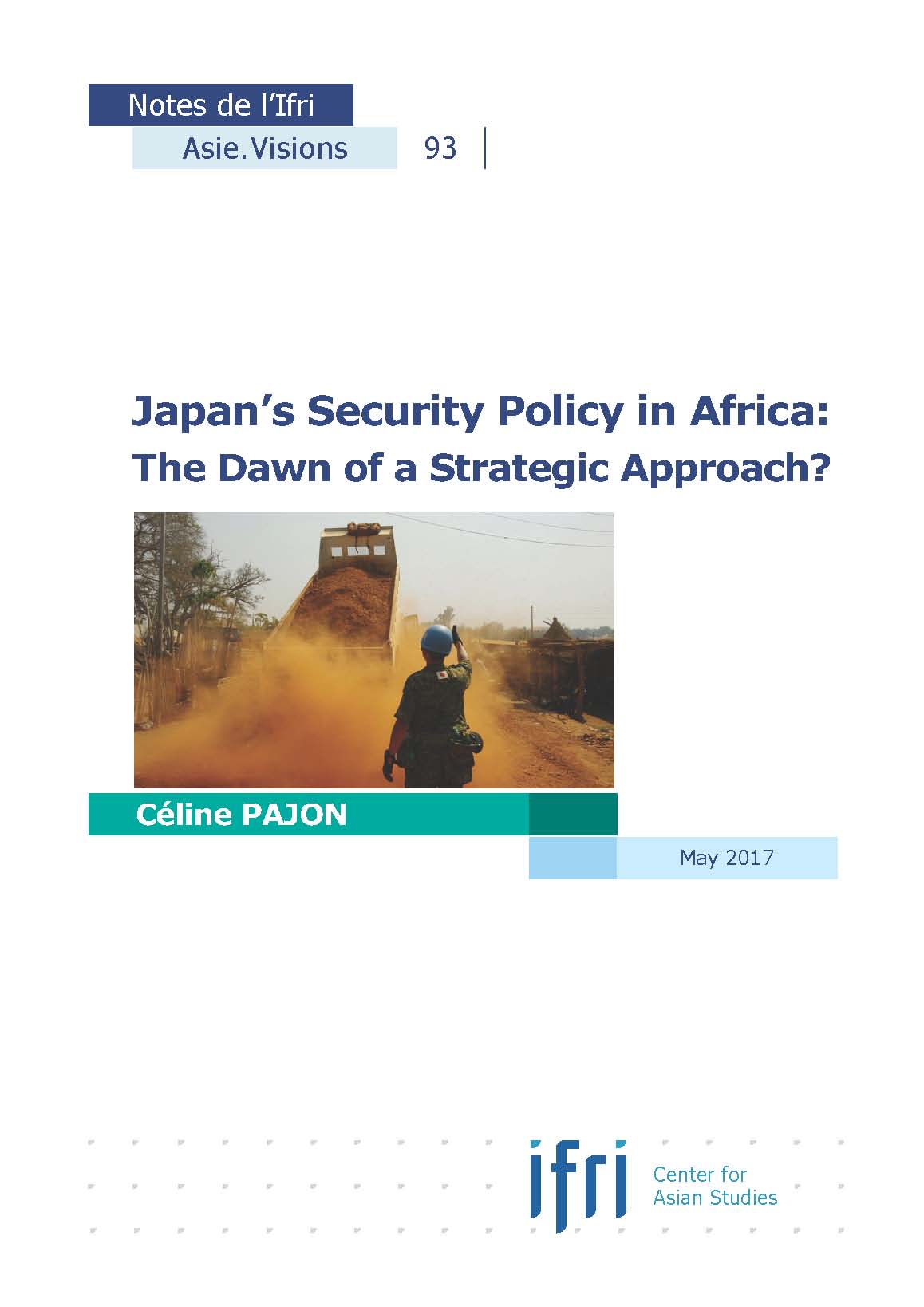Japan's Security Policy in Africa: The Dawn of a Strategic Approach?

This paper documents new features of Japan's diplomacy that tends to gradually integrate Africa into Japan's strategic interests.
In recent years, Japan's security contribution in Africa rose with the unprecedented participation of the Self-Defense Forces (SDF) in an international counter-piracy operation in the Gulf of Aden, the subsequent build-up of its first overseas military base in Djibouti, and the SDF's longest participation in United Nations Peace-Keeping Operations (UNPKO), in South Sudan (2012-May 2017). This increased security contribution has been driven by a need to react to various events, such as the rising Chinese presence in Africa and the increase in terrorist attacks and piracy. It is also a means of reassuring a risk-averse business sector and encouraging it to step up its investment in Africa. Finally, it is about demonstrating Japan's identity as a "proactive contributor to peace", and responsible shareholder in international security.
While media attention is drawn to the Japanese SDF presence on the ground and at sea, the bulk of Japan's security contribution to Africa remains low-key, mostly in the form of financial contributions and capacity-building assistance, and is very often channeled through or in partnership with multilateral institutions or a third country, such as France.
This said, Africa is now being associated more tightly with Japan's strategic core interests. Terrorist attacks on the continent are posing a direct risk to Japanese nationals. Threats to the security of vital maritime shipping routes transiting from the Middle East to the Indian Ocean are also directly undermining Tokyo's interests. The inclusion of Africa in the "Free and Open Indo-Pacific Strategy" demonstrates Japan's willingness to adopt a more strategic approach to Africa.
Download the full analysis
This page contains only a summary of our work. If you would like to have access to all the information from our research on the subject, you can download the full version in PDF format.
Japan's Security Policy in Africa: The Dawn of a Strategic Approach?
Related centers and programs
Discover our other research centers and programsFind out more
Discover all our analyses
RAMSES 2024. A World to Be Remade
For its 42nd edition, RAMSES 2024 identifies three major challenges for 2024.
France and the Philippines should anchor their maritime partnership
With shared interests in promoting international law and sustainable development, France and the Philippines should strengthen their maritime cooperation in the Indo-Pacific. Through bilateral agreements, expanded joint exercises and the exchange of best practices, both nations can enhance maritime domain awareness, counter security threats and develop blue economy initiatives. This deeper collaboration would reinforce stability and environmental stewardship across the region.

The China-led AIIB, a geopolitical tool?
The establishment of the Asian Infrastructure Investment Bank (AIIB) in 2016, on a Chinese initiative, constituted an attempt to bridge the gap in infrastructure financing in Asia. However, it was also perceived in the West as a potential vehicle for China’s geostrategic agendas, fueling the suspicion that the institution might compete rather than align with existing multilateral development banks (MDBs) and impose its own standards.
Jammu and Kashmir in the Aftermath of August 2019
The abrogation of Article 370, which granted special status to the state of Jammu and Kashmir (J&K), has been on the agenda of the Bharatiya Janata Party (BJP) for many decades.








